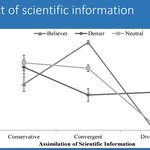Science & Society

The Natural Resources Defense Council environmental lobbying group has created a coalition and they have drafted a petition demanding that the U.S. Food and Drug Administration ban eight food additives they believe are carcinogens, in the interests of public health.
The problem is that many of these are natural, which is one reason why they have never been banned. The other reason is they haven't been shown to be harmful, regardless of whether or not we have been trained by environmental lobbying groups to be scared of chemical names.
The evidence-based science community is wondering why they…

The public has a bit of a cultural schism about elections. Everyone says they want more diversity of candidates but an actual primary race is a sign of weakness. In the United States of America, Democrats are trumpeting the fact that they picked their candidate for 2016 back in 2013 and ridiculing Republicans because they have a dozen contenders. And we are told that if polls are too accurate, people will not bother to vote, but if they are not accurately predicting the winner of an election that has not occurred, it is a failure.
In the 2012 U.S. presidential election, the results were so…

Patient safety, whistleblowing and public inquiry have a long historical legacy - but with mixed results.
Yet lessons from the past can inform current medical practice and help maintain a safe environment for patients and that will be the topic addressed by 20 health organizations who will be convening at the University of Leicester on June 11th to discuss how old patterns of patient safety and historical complaints against doctors are still being replicated in the modern welfare system – and what lessons can be learned by looking to our medical past.
The General Medical Council (…

At the Biotech Literacy Project Boot Camp, held a week ago at the U.C. Davis World Food Center, I was on a journalism roundtable with Brooke Borel, Keith Kloor and Razib Khan, moderated by Professor Kevin Folta, and I was asked about the most important thing for scientists to keep in mind regarding increasing science acceptance.
It's always difficult to pick just one but given the nature of the assault on food science, 'don't engage in deficit thinking' was my response. Basically, don't assume the other person simply lacks the proper facts or that if things are framed properly it would change…

A new global study finds that, despite lower yields, a target market for whom cost is not really an object makes organic agriculture more profitable for farmers than conventional agriculture.
Though it is already a $100 billion Big Ag industry in its own right, organic agriculture currently only accounts for one percent of agriculture globally. Those higher profits mean there is still plenty of room to expand. That's good news for organic farmers and customers who are willing to spend more, and it is unlikely to damage food security for poor people who will still be able to buy the same food…

A growing number of colleges and universities are emerging as multinational organizations – creating start-up versions of themselves in foreign countries.
Those vacationing in western France may drive past a campus of Georgia Institute of Technology. Similarly, those visiting Italy may come across a Johns Hopkins nestled in Bologna; or if you are a visitor to Rwanda, you may come across a Carnegie Mellon University campus.
According to the Cross-Border Education Research Team (C-BERT) at SUNY-Albany, 51 US universities now operate 83 branch campuses outside of the United States. Arkansas…

Physics at the UAB have found the “formula” to construct a quantum thermometer with enough precision to detect minute fluctuations in temperature in regions as small as the inside of a cell. The research appears today in the journal Physical Review Letters.
Researchers from the UAB and the University of Nottingham, in an article published today in Physical Review Letters, have fixed the limits of thermometry, i.e., they have established the smallest possible fluctuation in temperature which can be measured. The researchers have studied the sensitivity of thermometers created with a handful of…

Though 50 percent of science in America is done by the corporate world, journal articles are overwhelmingly written by academics.
The reason is simple: In the private sector, it is a given that basic research may not produce anything. A drug company expects 1 out of 5,000 efforts to get to market and entire divisions at some companies have never led to a product. CEOs understand it can't be a free-for-all but there has to be room for creativity, and those researchers don't have to think about validating their existence.
Academia is a different story. After World War II, and the success…

Teenage girls find female CEOs and military pilots to be better role models, but they like and feel more similar to women in careers like modeling and acting, say psychologists.
For the study, 100 girls and 76 boys ages 14 to 18 were shown photographs of model Heidi Klum, actress Jennifer Aniston, CEO Carly Fiorina and military pilot Sarah Deal Burrow. Klum and Aniston represented the appearance-focused careers (Aniston probably wasn't consulted on that, since she is clearly the best actress of the "Friends" cast) and Fiorina and Deal Burrow represented the non-appearance focused careers.…

Asking a few thousand Norwegians what they thought about climate change and not providing canned responses to choose from led to answers that were far more nuanced than the simplistic media portrayals that people accept every study or they are climate deniers.
The respondents were drawn from the Norwegian Citizen Panel, and the survey is part of the LINGCLIM project at the University of Bergen. This project is looking at the language used and the interpretations that prevail in the climate-change debate. The survey was carried out in 2013 as an online questionnaire. This kept the costs down,…